Virtual Reality Training Programs Financial Model

5-Year Financial Projections
100% Editable
Investor-Approved Valuation Models
MAC/PC Compatible, Fully Unlocked
No Accounting Knowledge Needed
Virtual Reality Training Programs Financial Model
Bundle Includes:
-
Financial Model
-
Business Plan
-
Pitch Deck
-
Financial Dashboard
ALL IN ONE MEGA PACK - CONSIST OF:
Virtual Reality Training Programs Financial Model/Business Plan Excel Template
Pitch Deck Template For PowerPoint, Keynote & Google Slides
Business Plan Guide and Business Plan Template in MS Word Format
Financial Dashboard in Excel To Track Your Business Performance
VIRTUAL REALITY TRAINING PROGRAMS FINANCIAL MODEL FOR STARTUP INFO
Highlights
Highly versatile and user-friendly virtual reality training business modeling tool featuring comprehensive financial projections, including detailed cash flow forecasting, expense forecasting, and a projected profit and loss template with monthly and annual timelines. This financial model is tailored for startups or established VR training program businesses, enabling thorough investment analysis, financial feasibility assessment, and profitability analysis of VR training solutions. Designed to support VR training program budgeting strategies and virtual reality training program financial statements, it provides key financial metrics for accurate VR training cost analysis and revenue forecasts. Fully unlocked and editable, it serves as an essential tool to evaluate the economic impact, financial risk, and return on investment of virtual reality training programs before strategic decisions like selling or funding.
The ready-made financial model template for virtual reality training programs effectively alleviates common pain points by offering a comprehensive 5-year financial projection that streamlines the financial modeling for VR training solutions, enabling users to perform virtual reality training cost analysis and VR training program budgeting strategies with ease. It automatically generates projected profit and loss statements, VR training program cash flow reports, and break-even analysis, which facilitates accurate virtual reality training program revenue forecasts and profitability analysis VR training programs. By incorporating financial risk assessment VR training projects and cost-benefit analysis VR training technology, the model ensures a robust financial feasibility VR training development process, while adhering to GAAP/IFRS standards enhances transparency in financial statements. This template also supports investment analysis virtual reality training and financial plan for virtual reality education, empowering stakeholders with crucial financial metrics for VR training startups and enabling an efficient VR training market financial assessment to optimize the economic impact of VR training programs.
Description
This comprehensive financial modeling tool for virtual reality training solutions integrates detailed virtual reality training cost analysis, VR training program budgeting strategies, and financial projections to guide operational management and investors in making informed decisions. Designed to support the financial plan for virtual reality education, it forecasts VR training program revenue and constructs 60-month financial statements including cash flow, profit and loss, and balance sheets, while enabling profitability analysis for VR training programs. The model incorporates investment analysis for virtual reality training, financial risk assessment VR training projects, and a virtual reality training ROI model to evaluate financial feasibility and economic impact, while offering key financial metrics such as NPV, IRR, free cash flow, and break-even points, ensuring a robust financial feasibility VR training development framework for startup and established businesses alike.
VIRTUAL REALITY TRAINING PROGRAMS FINANCIAL MODEL FINANCIAL MODEL REPORTS
All in One Place
Designing financial models for virtual reality training programs doesn’t require expert knowledge. With the right financial tools, you can confidently develop accurate VR training program budgets, expense forecasts, and revenue forecasts. Our comprehensive financial plan template offers tailored solutions for financial modeling, cost-benefit analysis, and investment analysis in VR training development. Streamline your financial feasibility assessments and boost profitability with this all-in-one VR training program financial model—empowering startups to optimize cash flow and maximize ROI with ease.
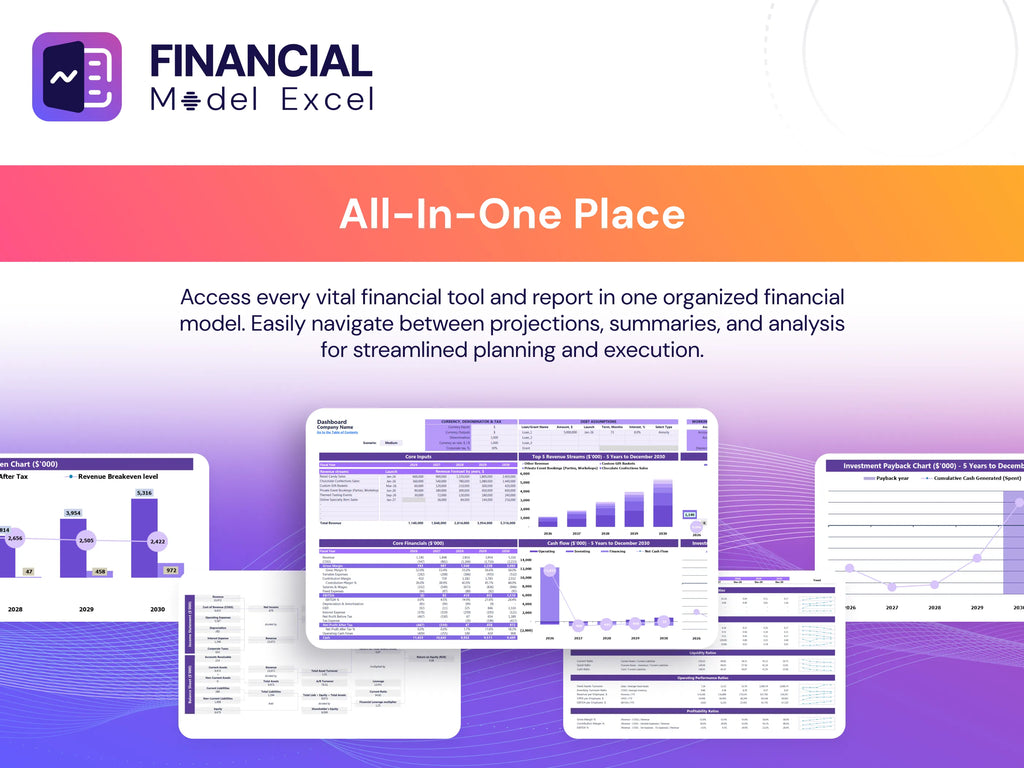
Dashboard
This comprehensive Excel template offers a dedicated section for essential financial metrics drawn from your startup financial statements across chosen periods. Easily analyze VR training program revenue forecasts, cash flow, and expense forecasting within a single dashboard. Ideal for conducting financial feasibility assessments, cost-benefit analysis, and investment analysis for virtual reality training projects. Gain actionable insights into your VR training program’s economic impact, profitability, and overall financial health—empowering strategic decision-making and effective VR training program budgeting strategies to drive success in the competitive virtual reality education market.
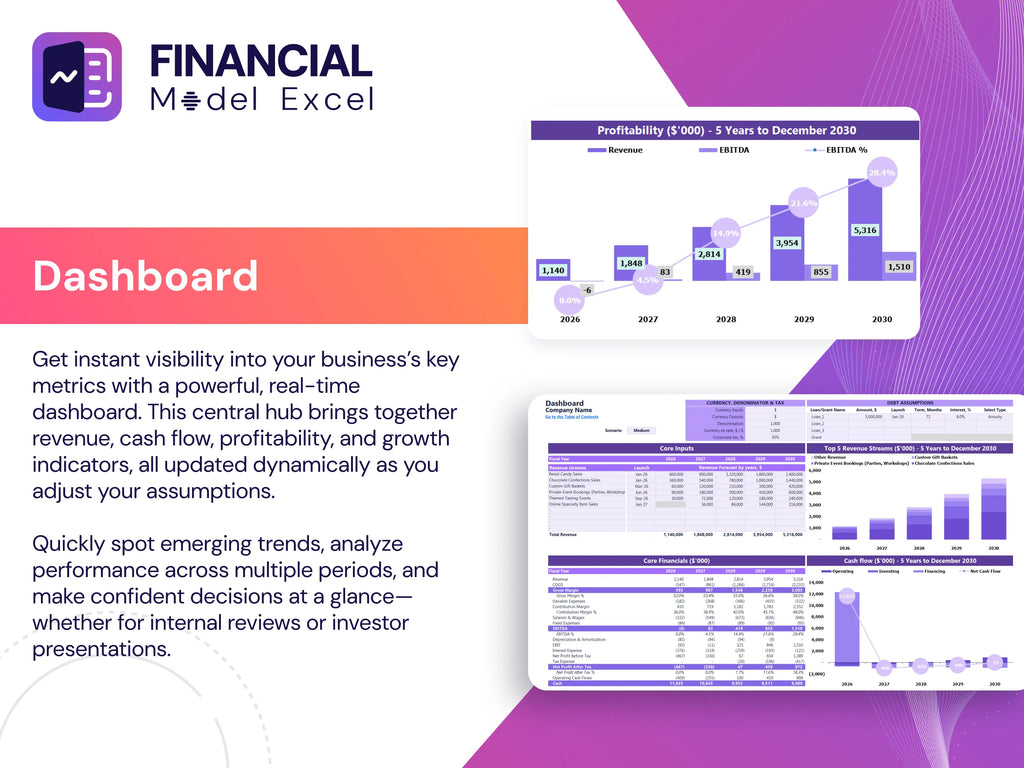
Business Financial Statements
A comprehensive VR training program financial plan hinges on three key financial statements. The Income Statement details revenues, expenses, depreciation, taxes, and interest, revealing true profitability. The Balance Sheet offers a snapshot of assets, liabilities, and shareholders’ equity, ensuring financial stability through balance. Meanwhile, the Cash Flow Statement tracks cash inflows and outflows, critical for financial feasibility and accurate VR training program cash flow forecasting. Together, these documents form the backbone of effective financial modeling, cost-benefit analysis, and investment analysis for virtual reality training solutions, driving informed budgeting strategies and reliable revenue forecasts.
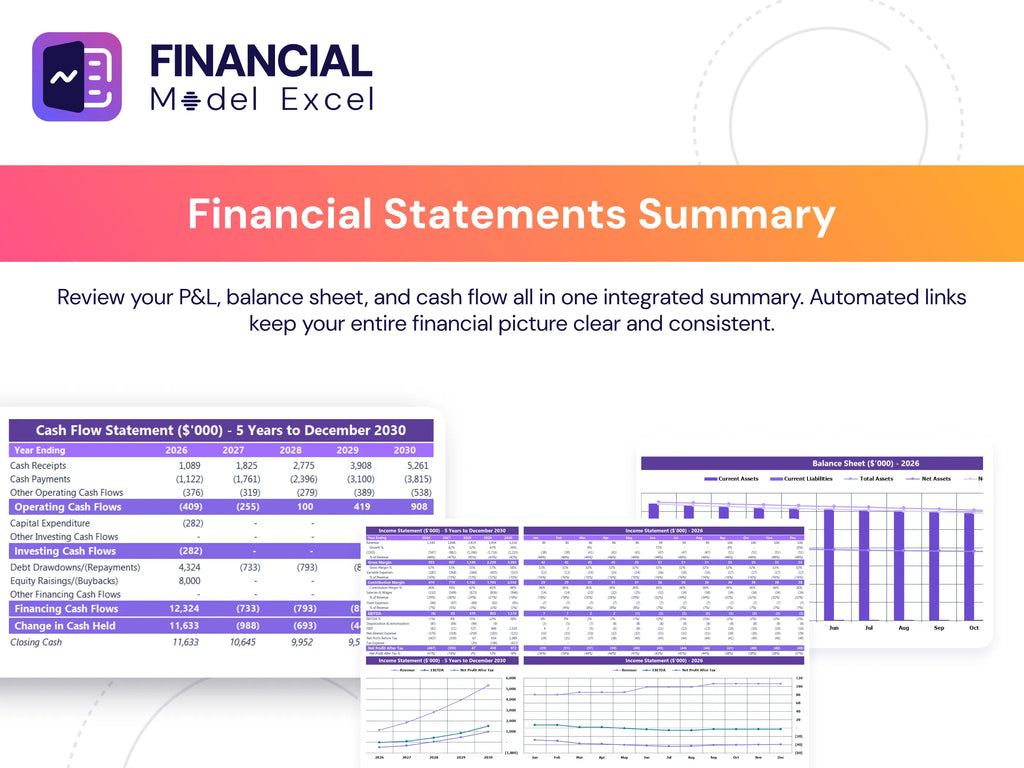
Sources And Uses Statement
In today’s competitive landscape, incorporating detailed financial modeling for VR training solutions is essential. Utilizing comprehensive tables in your business forecast template ensures precise calculations and clear visualization of sources and uses charts. This approach enhances virtual reality training cost analysis, supports robust financial projections, and strengthens your VR training program revenue forecast. By integrating these financial planning tools, you can confidently develop budgeting strategies and investment analyses that optimize profitability and assess the economic impact of VR training programs. Accurate financial statements and expense forecasting are key to a successful virtual reality training business model.
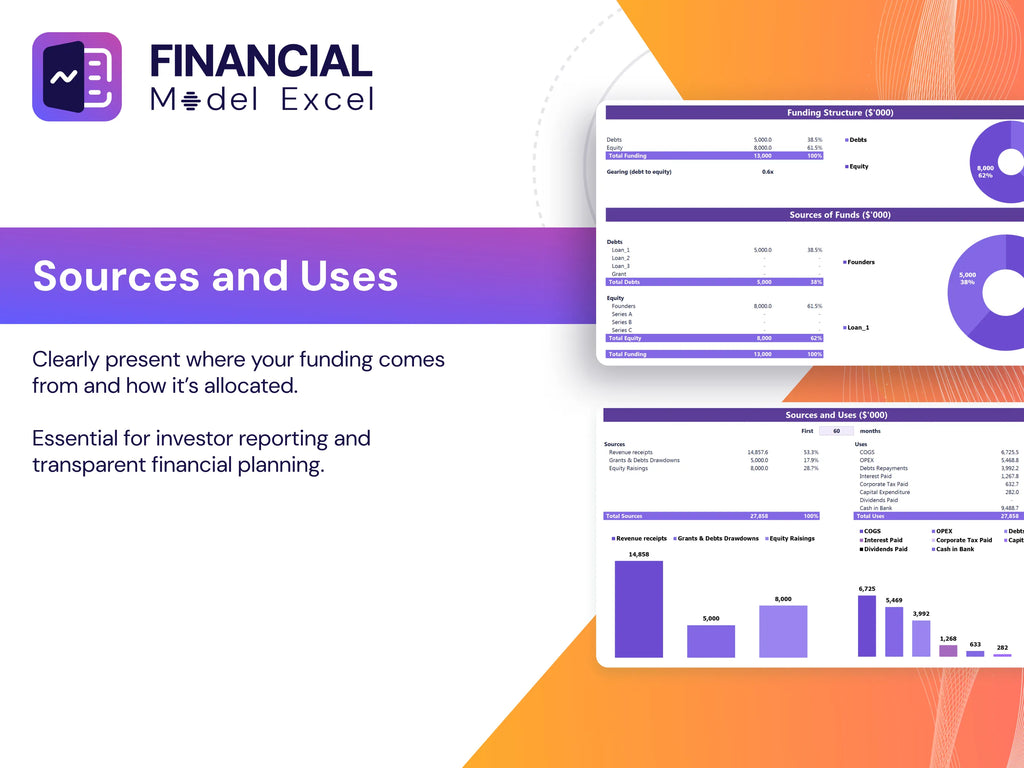
Break Even Point In Sales Dollars
This comprehensive break-even analysis report leverages advanced financial modeling for VR training solutions, detailing the annual revenue required to cover both fixed and variable costs. It provides clear insights into the timeline—expressed in months—to achieve profitability, supporting strategic VR training program budgeting strategies. Designed to inform your financial plan for virtual reality education, this tool enhances your VR training program revenue forecast and cost-benefit analysis, empowering precise financial projections and investment analysis for sustainable growth in the virtual reality training market.
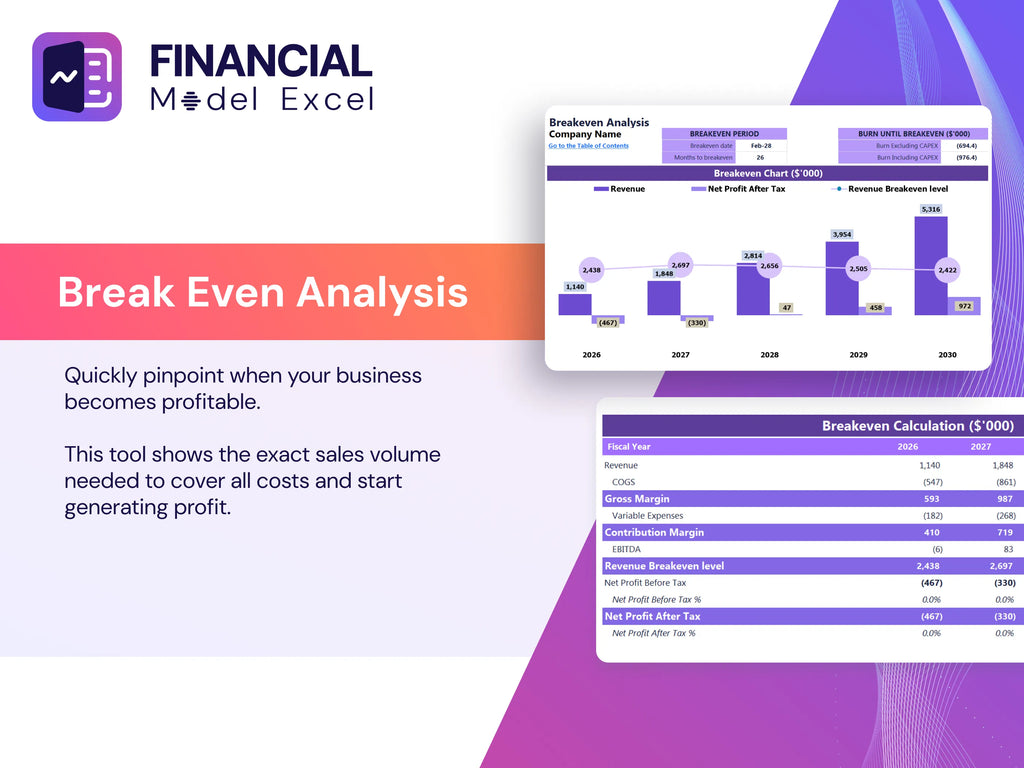
Top Revenue
In the Top Revenue tab of this Excel financial model, users can generate detailed revenue forecasts by product or service, enabling comprehensive VR training program revenue forecasting. This tool supports virtual reality training business modeling by simulating profitability and financial attractiveness across scenarios. It also facilitates in-depth revenue analysis, including revenue bridges, while projecting demand fluctuations (e.g., weekdays vs. weekends). This insight allows precise VR training program budgeting strategies and resource allocation, enhancing financial planning for virtual reality education and optimizing investment analysis for VR training development.
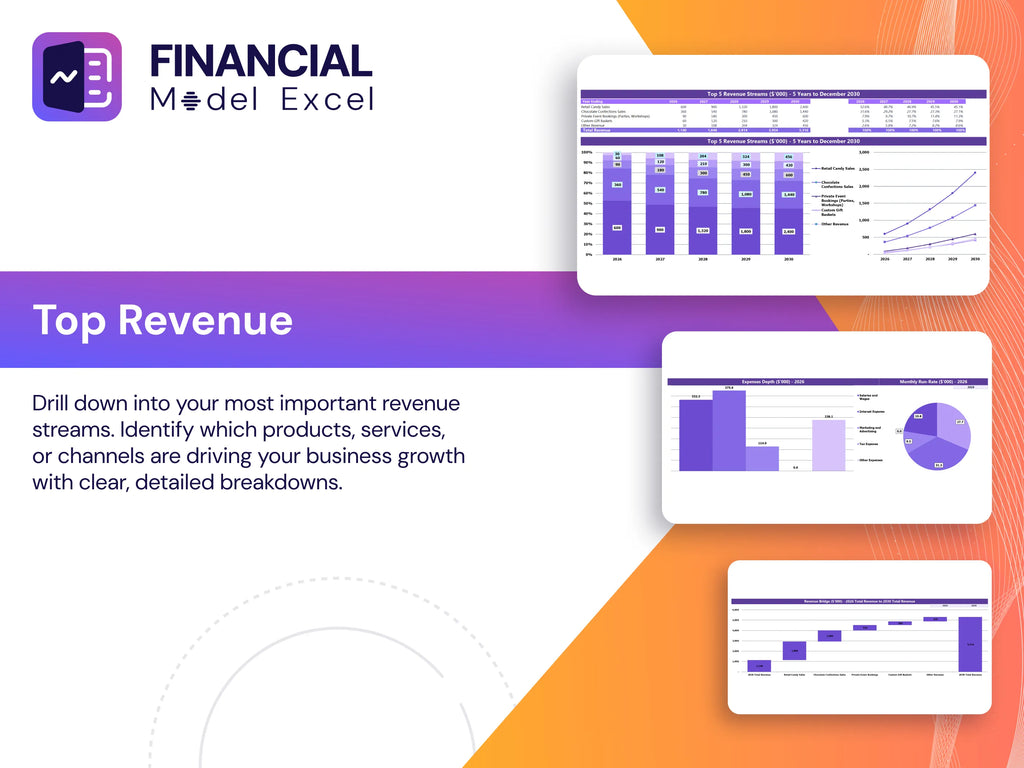
Business Top Expenses Spreadsheet
In the Top Expenses section of our startup cost template, efficiently track major costs across four customizable categories, including an expandable ‘Other’ option to suit your virtual reality training program budgeting strategies. Leverage this framework to incorporate historical data or develop a detailed 5-year financial projection, supporting your financial modeling for VR training solutions. This approach enhances your financial plan for virtual reality education by enabling accurate expense forecasting and profitability analysis, crucial for a robust VR training program revenue forecast and investment analysis in VR training development.
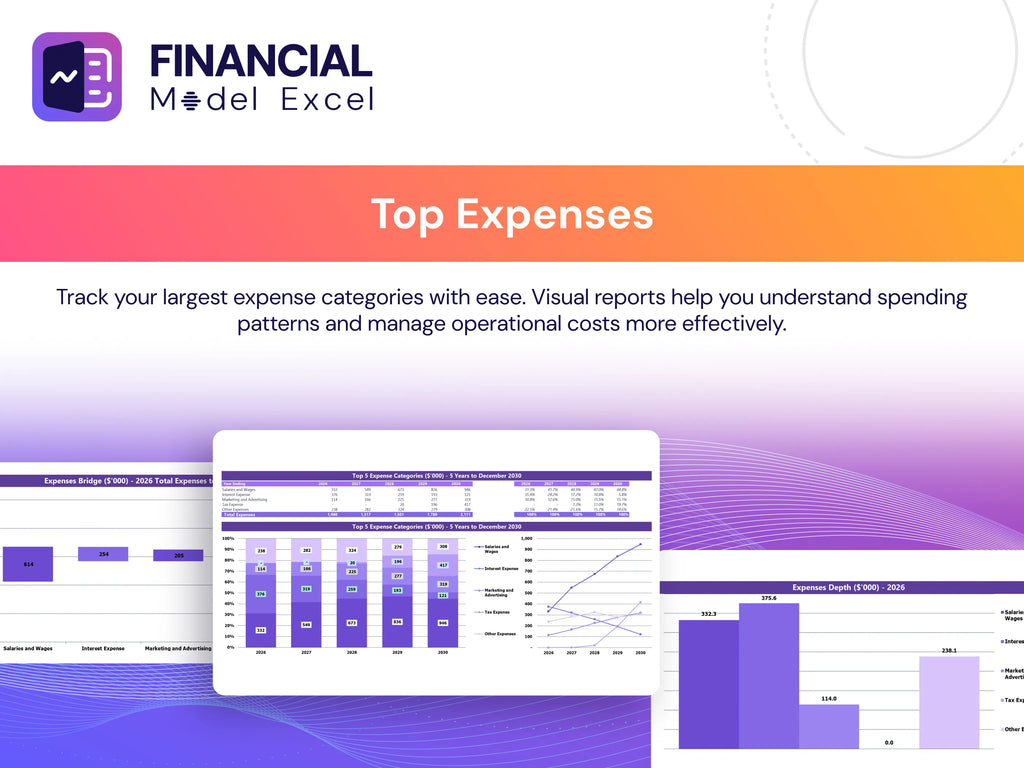
VIRTUAL REALITY TRAINING PROGRAMS FINANCIAL MODEL FINANCIAL PROJECTION EXPENSES
Costs
Instantly generate organized, comprehensive financial projections with this Excel template designed for virtual reality training programs. Featuring end-to-end financial modeling for VR training solutions, it automates forecasting of fixed operating expenses—including R&D and SG&A—eliminating manual updates. Whether conducting cost-benefit analysis, VR training program revenue forecasts, or investment analysis for VR training development, this 3-way financial model streamlines budgeting strategies and financial risk assessment. Empower your virtual reality training business modeling with accurate cash flow, profitability analysis, and financial metrics tailored for VR training startups, enabling confident decisions and optimized ROI.
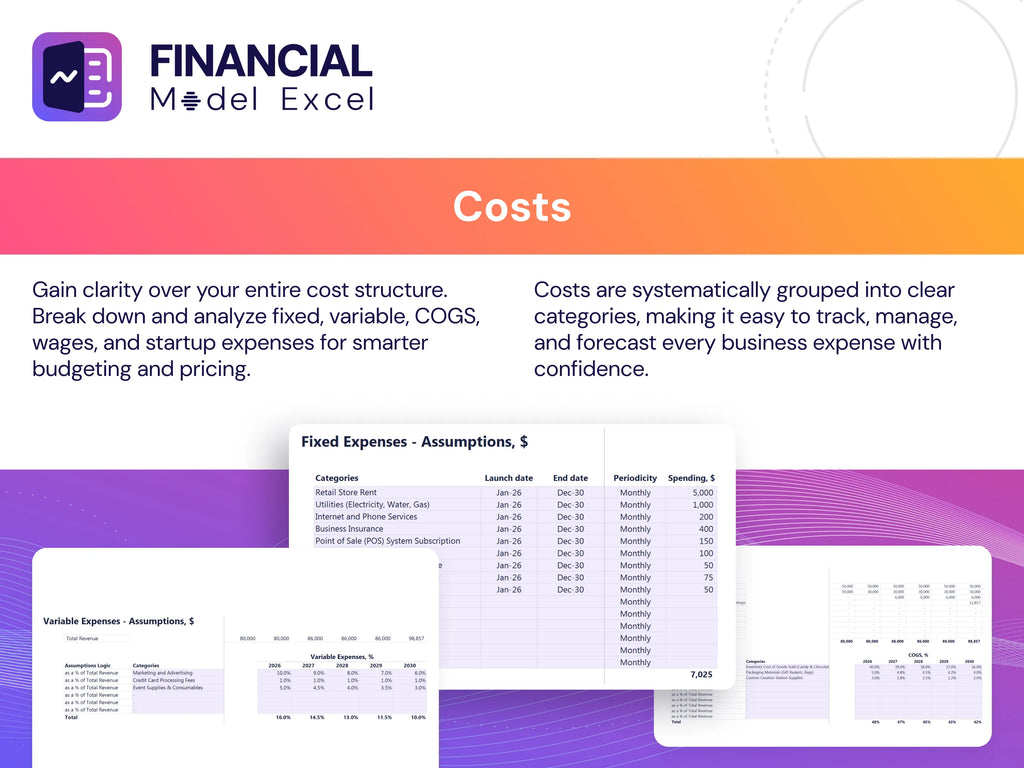
CAPEX Spending
Capital expenditure (CapEx) is a critical component in financial modeling for VR training solutions. Accurately forecasting development costs enables precise virtual reality training cost analysis and financial projections. This includes tracking investments in fixed assets, managing depreciation, and accounting for additions or disposals related to property, plant, and equipment (PPE). Incorporating assets acquired through financial leasing ensures comprehensive VR training program budgeting strategies. Implementing robust CapEx calculations supports effective financial planning for virtual reality education and underpins reliable VR training program revenue forecasts and profitability analysis.
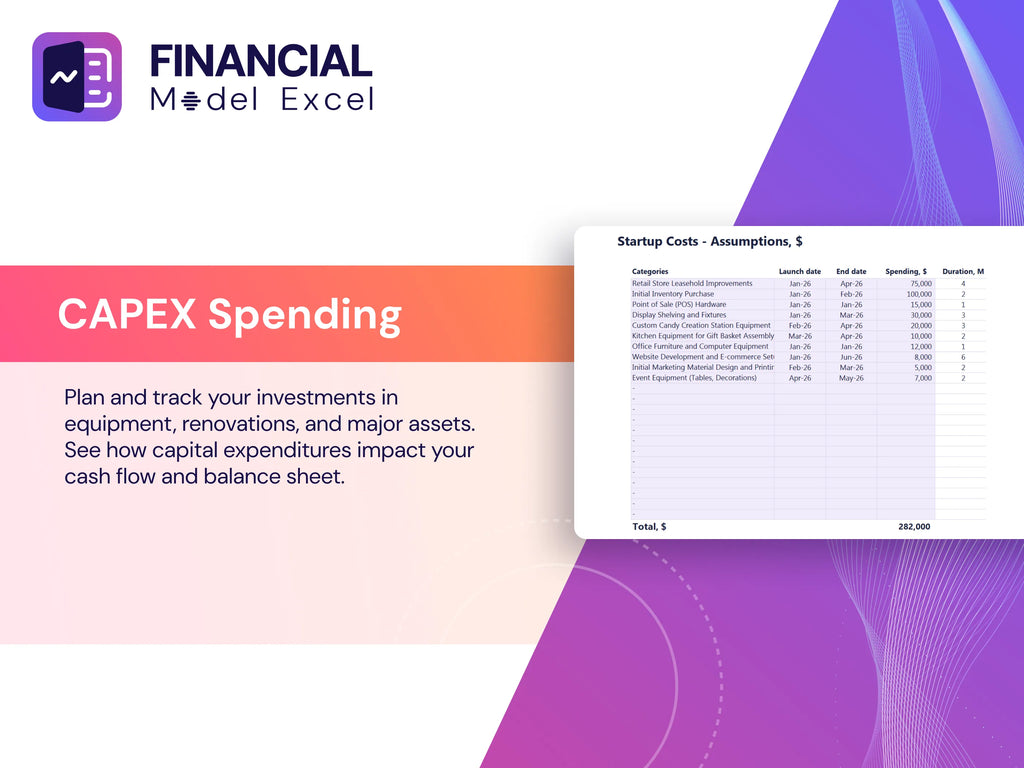
Loan Financing Calculator
Much like amortizing assets in financial projections, loan amortization for virtual reality training programs involves scheduling fixed repayments over multiple reporting periods. This structured approach, whether monthly, quarterly, or annually, is essential in financial modeling for VR training solutions. Incorporating loan amortization into VR training cost analysis and budgeting strategies ensures accurate expense forecasting and enhances the financial feasibility of VR training development. By integrating amortization schedules into VR training program financial statements, stakeholders gain clearer insights into cash flow, investment analysis, and overall profitability, ultimately supporting a robust virtual reality training ROI model.
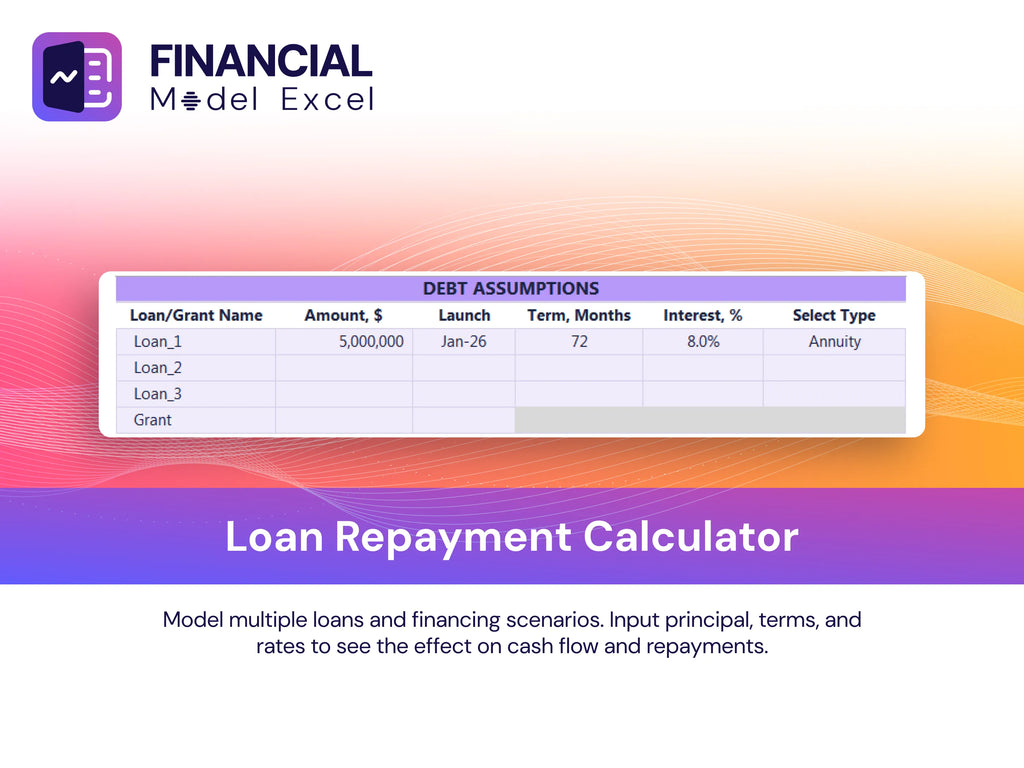
VIRTUAL REALITY TRAINING PROGRAMS FINANCIAL MODEL EXCEL FINANCIAL MODEL METRICS
Financial KPIs
The gross profit margin, featured in our VR training program financial modeling, is a vital metric indicating financial health. It reveals the gap between revenue and cost of sales within virtual reality training cost analysis. An improving gross profit margin signals stronger profitability, driven by reduced expenses or increased revenue in VR training program budgeting strategies. Monitoring this ratio is crucial for accurate financial projections and enhancing the financial feasibility of VR training development, ultimately supporting a robust VR training ROI model and informed investment analysis in VR training solutions.
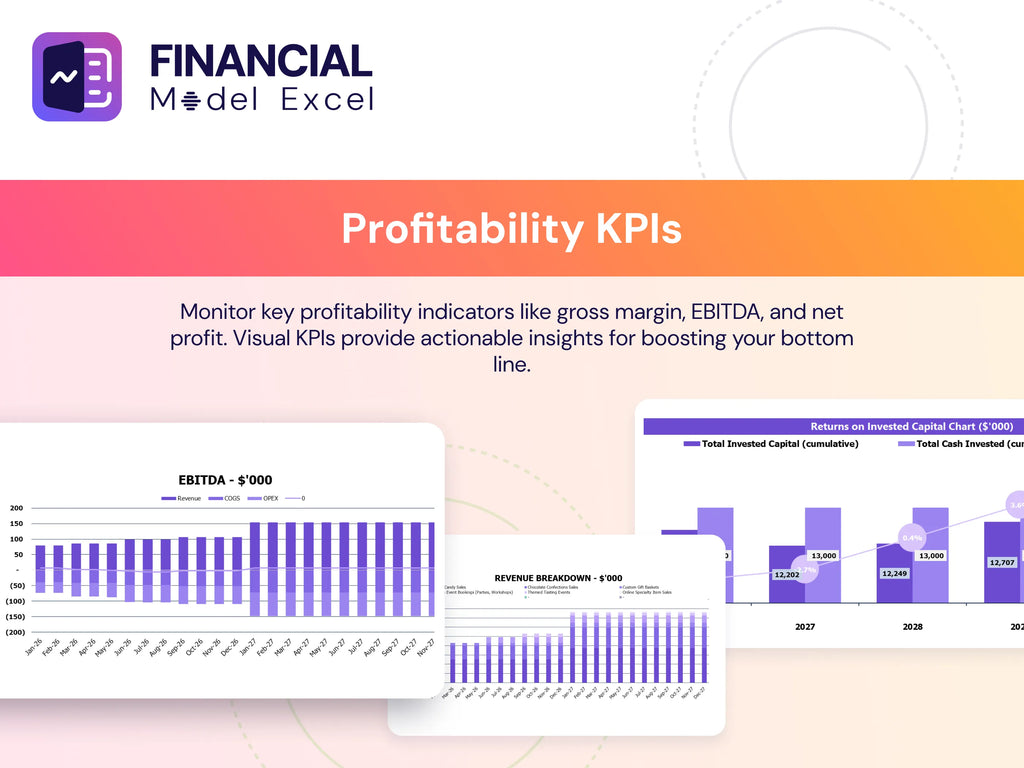
Cash Flow Forecast Excel
In virtual reality training program financial modeling, cash flow analysis is crucial to track incoming and outgoing funds, ensuring sufficient liquidity to meet liabilities. A detailed VR training program cash flow forecast highlights the financial feasibility of development and supports investment analysis. Additionally, the profit and loss template is vital when engaging with financial institutions, as lenders rigorously evaluate your cash position and debt servicing capacity before approving funding. Incorporating robust VR training program budgeting strategies and financial statements strengthens your virtual reality training funding model and enhances the credibility of your financial projections.
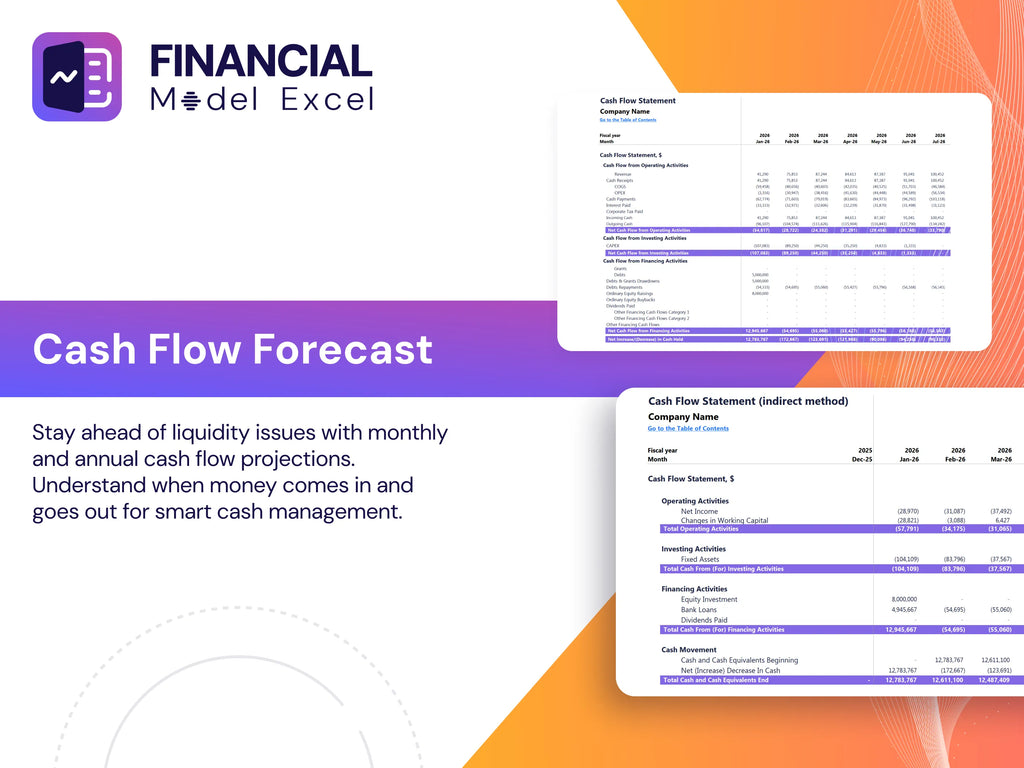
KPI Benchmarks
A benchmarking study within financial modeling for VR training solutions is key to evaluating business performance. By analyzing metrics such as profit margins, cost per unit, and productivity, companies can compare their virtual reality training program financial statements against industry leaders. This cost-benefit analysis VR training technology helps startups refine their financial plan for virtual reality education, optimize budgeting strategies, and improve profitability analysis. Leveraging benchmarking enables precise VR training program cash flow forecasting and financial risk assessment, driving smarter investment decisions and maximizing the VR training program ROI model for sustained growth in the competitive VR training market.
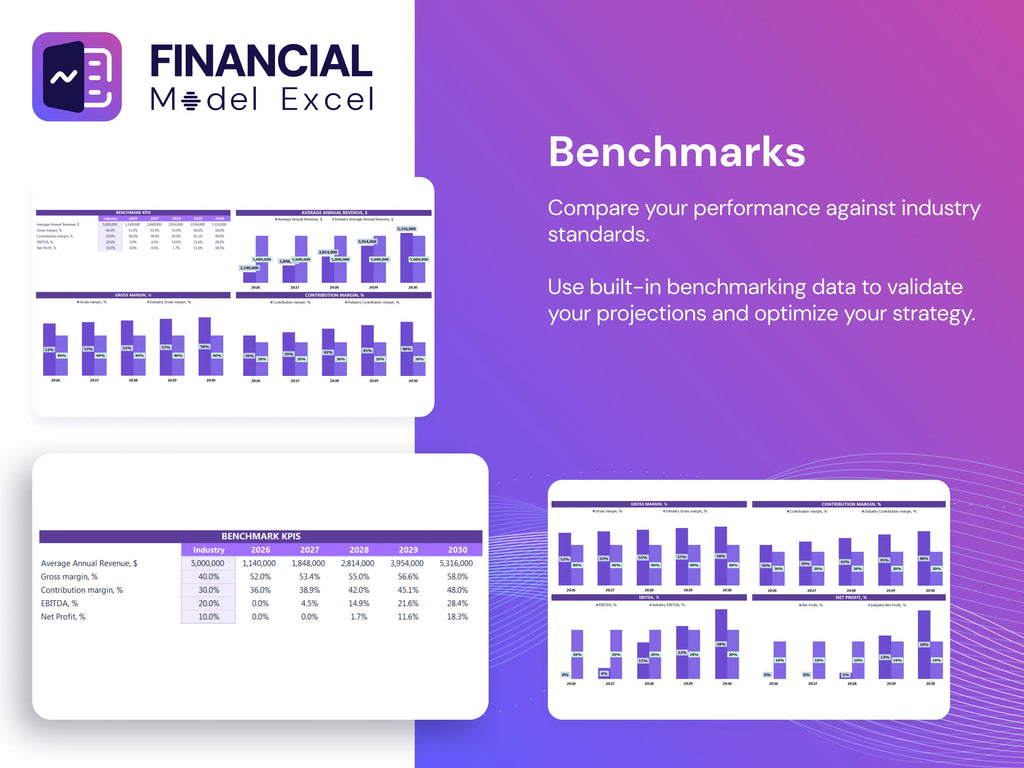
P&L Statement Excel
The income statement is a vital component of any VR training program financial modeling, revealing profitability and key levers for growth through historical and forecasted revenues and expenses. However, relying solely on this statement offers an incomplete view. Comprehensive financial planning for virtual reality education requires integrating the income statement with balance sheets and cash flow analyses. This approach ensures accurate virtual reality training cost analysis, financial feasibility assessment, and effective budgeting strategies to optimize ROI models and investment analysis, delivering a holistic financial snapshot critical for the success of VR training program development.
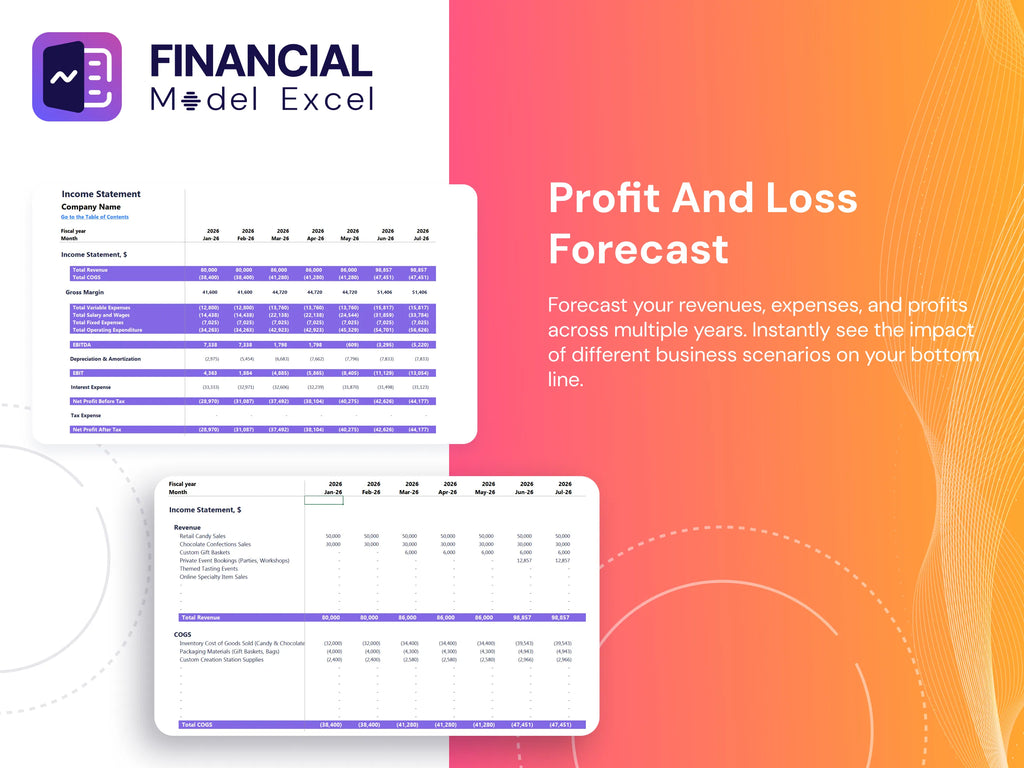
Pro Forma Balance Sheet Template Excel
We incorporated the pro forma balance sheet as a cornerstone financial statement, essential for every virtual reality training program’s financial plan. This report outlines current and long-term assets, liabilities, and equity, offering critical data for financial modeling and investment analysis. By projecting the balance sheet, VR training startups can perform accurate profitability analysis, financial risk assessment, and expense forecasting—enabling informed decisions grounded in solid financial metrics and enhancing the virtual reality training business modeling process.
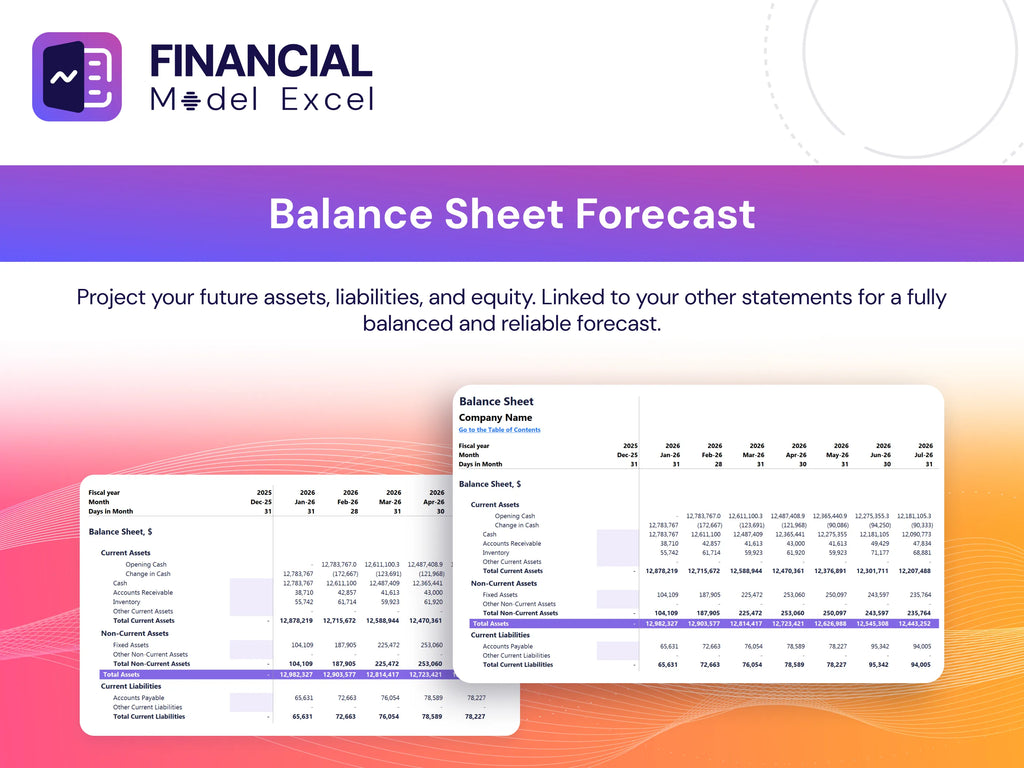
VIRTUAL REALITY TRAINING PROGRAMS FINANCIAL MODEL FINANCIAL PROJECTION TEMPLATE VALUATION
Startup Valuation Model
Leverage our comprehensive financial modeling template tailored for virtual reality training programs to deliver precise investment analysis and funding models. Showcase your project's financial feasibility with detailed VR training program cash flow forecasts and WACC calculations, demonstrating minimum returns expected by stakeholders. Utilize discounted cash flow valuation to highlight the present value of future earnings, assuring investors of your initiative’s profitability. This robust virtual reality training business modeling tool provides critical financial metrics, empowering you to present compelling VR training program revenue forecasts and cost-benefit analyses with confidence.
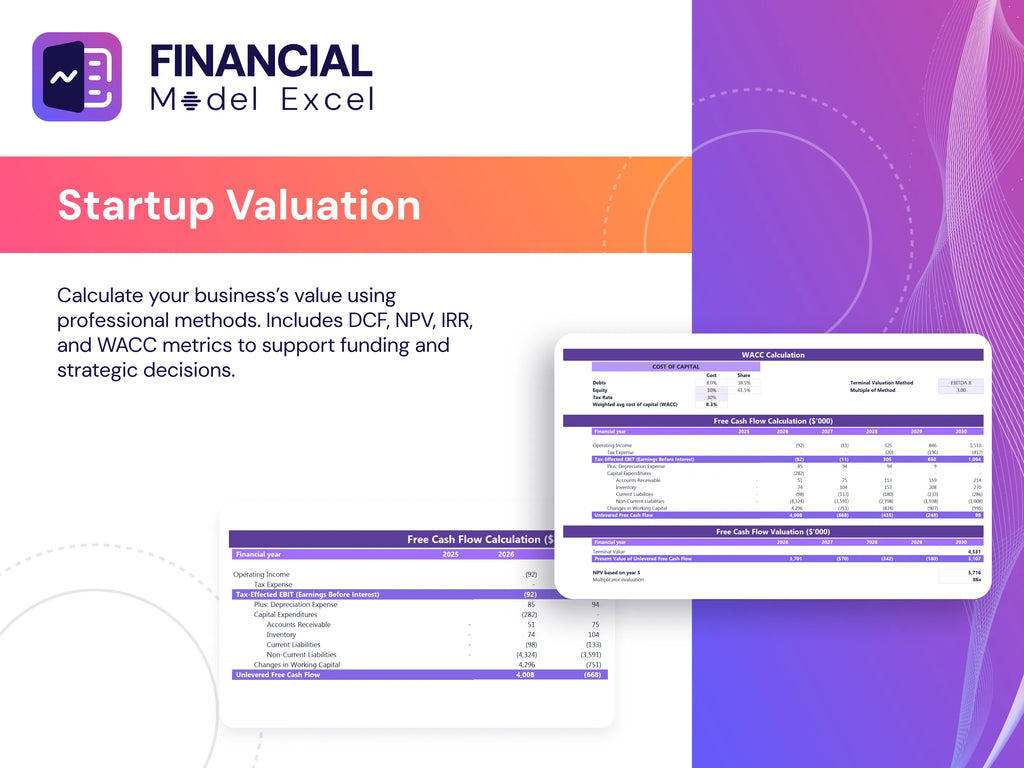
Cap Table
Our comprehensive financial model for virtual reality training programs integrates detailed financial projections, including VR training program revenue forecasts and expense forecasting. The model features a streamlined cap table, essential for startups, outlining ownership structure with shares, options, investor contributions, and percentage stakes. This tool supports robust financial planning by combining cost-benefit analysis, budgeting strategies, and investment analysis to evaluate the financial feasibility and ROI of VR training solutions, empowering stakeholders to make informed decisions and maximize profitability in the evolving VR training market.
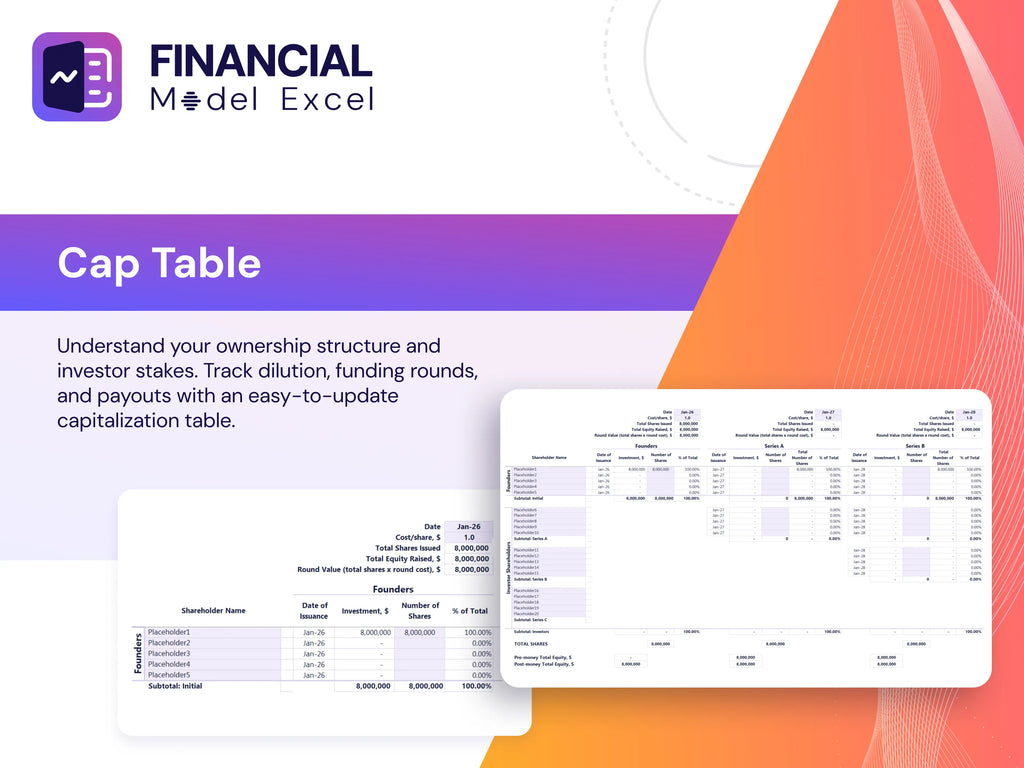
VIRTUAL REALITY TRAINING PROGRAMS 3 STATEMENT FINANCIAL MODEL TEMPLATE ADVANTAGES
Easily model VR training financials to optimize budgeting, forecast revenue, and enhance investment decision-making confidently.
Optimize startup loan repayments effortlessly with our precise financial modeling for virtual reality training programs.
Boost stakeholder confidence with precise financial modeling for VR training solutions, ensuring clear, data-driven investment insights.
The bottom-up financial model empowers accurate comparison of VR training program expenses and income across periods for strategic growth.
The financial model empowers accurate forecasting, enhancing decision-making and maximizing profitability in VR training programs.
VIRTUAL REALITY TRAINING PROGRAMS FINANCIAL MODEL TEMPLATE ADVANTAGES
The financial model for VR training solutions optimizes surplus cash management, maximizing profitability and investment efficiency.
Financial modeling for VR training empowers precise cash flow forecasting, optimizing reinvestment and maximizing business growth opportunities.
Our financial modeling for VR training solutions ensures precise forecasting, optimizing profitability and strategic growth potential.
Financial modeling for VR training programs empowers precise cash flow forecasting, driving strategic growth and informed investment decisions.
Optimize investment decisions with a robust financial model guiding profitable virtual reality training program development and funding.
Impress investors with a robust VR training financial model ensuring accurate forecasts, profitable insights, and confident funding decisions.
Our financial modeling for VR training solutions ensures accurate forecasting, maximizing profitability and attracting strategic investments.
A robust financial model for VR training ensures sustainable growth by accurately forecasting cash flow and minimizing risks.
Optimize your VR training ROI with precise financial modeling, ensuring profitability and informed investment decisions from the start.
Maximize funding success with our VR training financial model, offering clear 5-year projections for strategic investor confidence.





